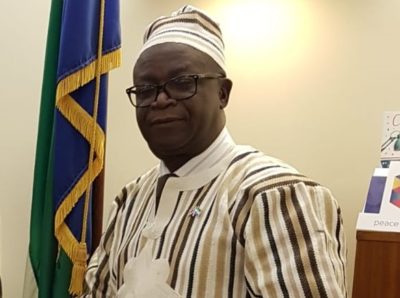By Amin Kef Sesay
Lately, there has been acrimony between Mayors and Chairpersons of the Local Councils and the Minister of Local Government and the Local Government Commission over the issue of whether the Local Government Act stipulates that it is the Minister and the Commission that should be responsible for recruiting staffs and assigning them to the different Local Councils or should this be the prerogative of the Local Councils themselves in consultation with the Commission.
To the Councils, it seems as if the central Government has given them the cow but wants to hold on to the rope. This, the Councils maintain is not in the spirit of the Local Government Act and definitely points towards attempt by the Central Government to maintain control of the Councils by recruiting, appointing and posting their key officials
It is very heartwarming that the Parliamentary Local Government Committee has come out with a clear ruling on the matter that will now leave the Minister and the Commission in no doubt where authority lies to recruit staffs of Local Councils.
When Sierra Leone emerged from more than a decade of conflict in 2002, it was one of the poorest countries in the world. It faced huge development challenges, with much of its infrastructure having been destroyed during the war.
The areas outside Freetown had traditionally been excluded and marginalized. In fact, the over centralized system of rule, which excluded the majority of the population, was one of the key causes of the conflict. There were internal and external pressures on the Government to be more inclusive to establish its legitimacy and reverse the conditions that led the country to conflict as contained in the Truth and Reconciliation Commission Report 2004.
The reestablishment of Local Governments, through the Local Government Act of 2004, was an important initiative in this direction undertaken by the Sierra Leone People’s Party (SLPP) Government of Abdul Tejan Kabbah. The legislative framework provided by the Act and the associated regulations for political, fiscal, and administrative decentralization (with some exceptions) provided a robust foundation for the establishment of decentralization through devolution of key functions from the central Government to Local Councils. They also provided a simple and easily understood system for intergovernmental transfers.
The Local Government Act of 2004 identifies Local Councils as the highest political authority in their jurisdiction. The legislation sets out a detailed political framework covering the election and composition of Councils; the qualifications of Councilors; procedures for the election of Mayors (urban) and Chairpersons (rural); powers to make and execute bylaws; the role and responsibilities of Ward Committees; and provision for citizen participation, transparency, and accountability.
Right from the start, there was the fear that the Act and its implementation leave open the possibility of the center dominating and manipulating the sub-national Governments by playing off the traditional authorities (chieftaincies) against the local authorities through a “divide and rule” strategy and by minimizing the autonomy of the Local Councils over the control of financial and human resources.
Important arguments in favor of decentralizing Government are that it: creates an efficient and reliable administration, intensifies and improves local development, better ensures the rights of the local population to have a voice in Government, and better protects minorities.
In facilitating growth at the rural levels, decentralization is intended to grant more autonomy or freedom to lower level. This helps the subordinates to do the work in the manner best suited for their department. When each department is doing to their best then productivity increases and it will generate more revenue which can be used for expansion.
Decentralization has a positive effect because the employees at the lowest level will become more proactive with their task and they may feel that they are important to the country because of their participation in planning, brainstorming, implementation and other activities at their own levels.




